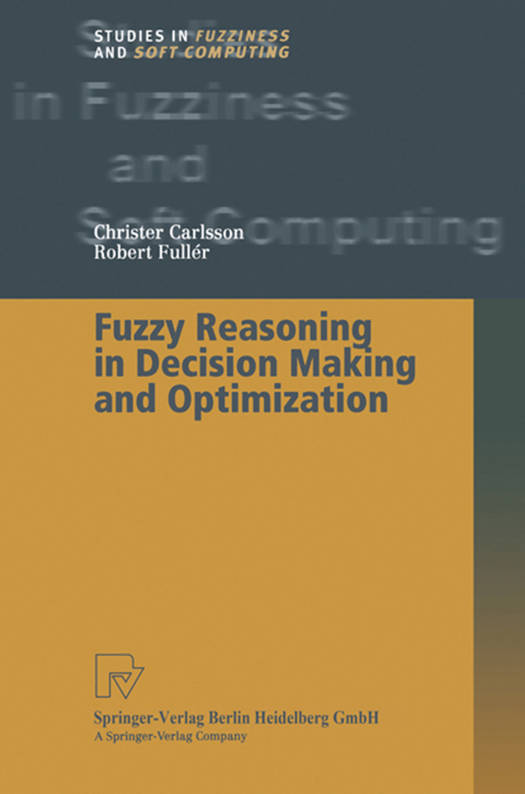
- Afhalen na 1 uur in een winkel met voorraad
- Gratis thuislevering in België vanaf € 30
- Ruim aanbod met 7 miljoen producten
- Afhalen na 1 uur in een winkel met voorraad
- Gratis thuislevering in België vanaf € 30
- Ruim aanbod met 7 miljoen producten
Zoeken
€ 223,95
+ 447 punten
Uitvoering
Omschrijving
Many decision-making tasks are too complex to be understood quantitatively, however, humans succeed by using knowledge that is imprecise rather than precise. Fuzzy logic resembles human reasoning in its use of imprecise informa- tion to generate decisions. Unlike classical logic which requires a deep under- standing of a system, exact equations, and precise numeric values, fuzzy logic incorporates an alternative way of thinking, which allows modeling complex systems using a higher level of abstraction originating from our knowledge and experience. Fuzzy logic allows expressing this knowledge with subjective concepts such as very big and a long time which are mapped into exact numeric ranges. Since knowledge can be expressed in a more natural by using fuzzy sets, many decision (and engineering) problems can be greatly simplified. Fuzzy logic provides an inference morphology that enables approximate human reasoning capabilities to be applied to knowledge-based systems. The theory of fuzzy logic provides a mathematical strength to capture the un- certainties associated with human cognitive processes, such as thinking and reasoning. The conventional approaches to knowledge representation lack the means for representating the meaning of fuzzy concepts. As a consequence, the approaches based on first order logic do not provide an appropriate con- ceptual framework for dealing with the representation of commonsense knowl- edge, since such knowledge is by its nature both lexically imprecise and non- categorical.
Specificaties
Betrokkenen
- Auteur(s):
- Uitgeverij:
Inhoud
- Aantal bladzijden:
- 338
- Taal:
- Engels
- Reeks:
- Reeksnummer:
- nr. 82
Eigenschappen
- Productcode (EAN):
- 9783790824971
- Verschijningsdatum:
- 21/10/2010
- Uitvoering:
- Paperback
- Formaat:
- Trade paperback (VS)
- Afmetingen:
- 156 mm x 234 mm
- Gewicht:
- 494 g

Alleen bij Standaard Boekhandel
+ 447 punten op je klantenkaart van Standaard Boekhandel
Beoordelingen
We publiceren alleen reviews die voldoen aan de voorwaarden voor reviews. Bekijk onze voorwaarden voor reviews.








